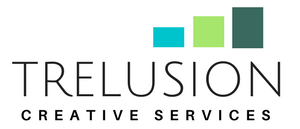The development of social media has impacted businesses in countless ways, but one of the most significant changes has been in providing consumers with an avenue to engage directly with the companies with whom they do business. Consider the process of a customer submitting a complaint to a company in the past: writing a letter, stamping and mailing, hoping that somehow it captures the company’s attention rather than falling into a slush pile somewhere — and then waiting weeks or months for a reply, if indeed one ever came. In fact, according to Erik Qualman’s Socialnomics, most dissatisfied customers — as many as 96% — never bothered to complain at all. Many of them just stopped doing business with the company altogether.
 Today, contacting a company to report a complaint is as simple as sending a tweet. Consumers can use their computers or phones to send an email, post a message on Facebook, leave a comment on a company’s website or engage directly with the company on Twitter. Companies often monitor social media networks around the clock to address potential concerns before they can grow out of control. Media titan Comcast, which, as Qualman notes in his book, has been notorious for its poor customer service in the past, now has a dedicated Twitter account (@ComcastCares) whose mission is to provide instant help and technical support.
Today, contacting a company to report a complaint is as simple as sending a tweet. Consumers can use their computers or phones to send an email, post a message on Facebook, leave a comment on a company’s website or engage directly with the company on Twitter. Companies often monitor social media networks around the clock to address potential concerns before they can grow out of control. Media titan Comcast, which, as Qualman notes in his book, has been notorious for its poor customer service in the past, now has a dedicated Twitter account (@ComcastCares) whose mission is to provide instant help and technical support.
As a result of the growing demands and new expectations of the plugged-in consumer, the role of the public relations officer has been dramatically changed. It is no longer enough to be trained in traditional media methodologies; social media and other digital applications are necessary tools for modern PR professionals. In a 2014 study of the impact of social media on their jobs, ING found that 56% of PR professionals surveyed reported that social media has reduced the importance of traditional media in their jobs, while 81% believe that the field of public relations can no longer operate without social media as part of the process. Additionally, 55% of those surveyed believe they could not do their jobs without social media. As a result, skills such as digital literacy, search engine optimization and verifying information online are now vitally important to the success of a PR professional in the digital world.
